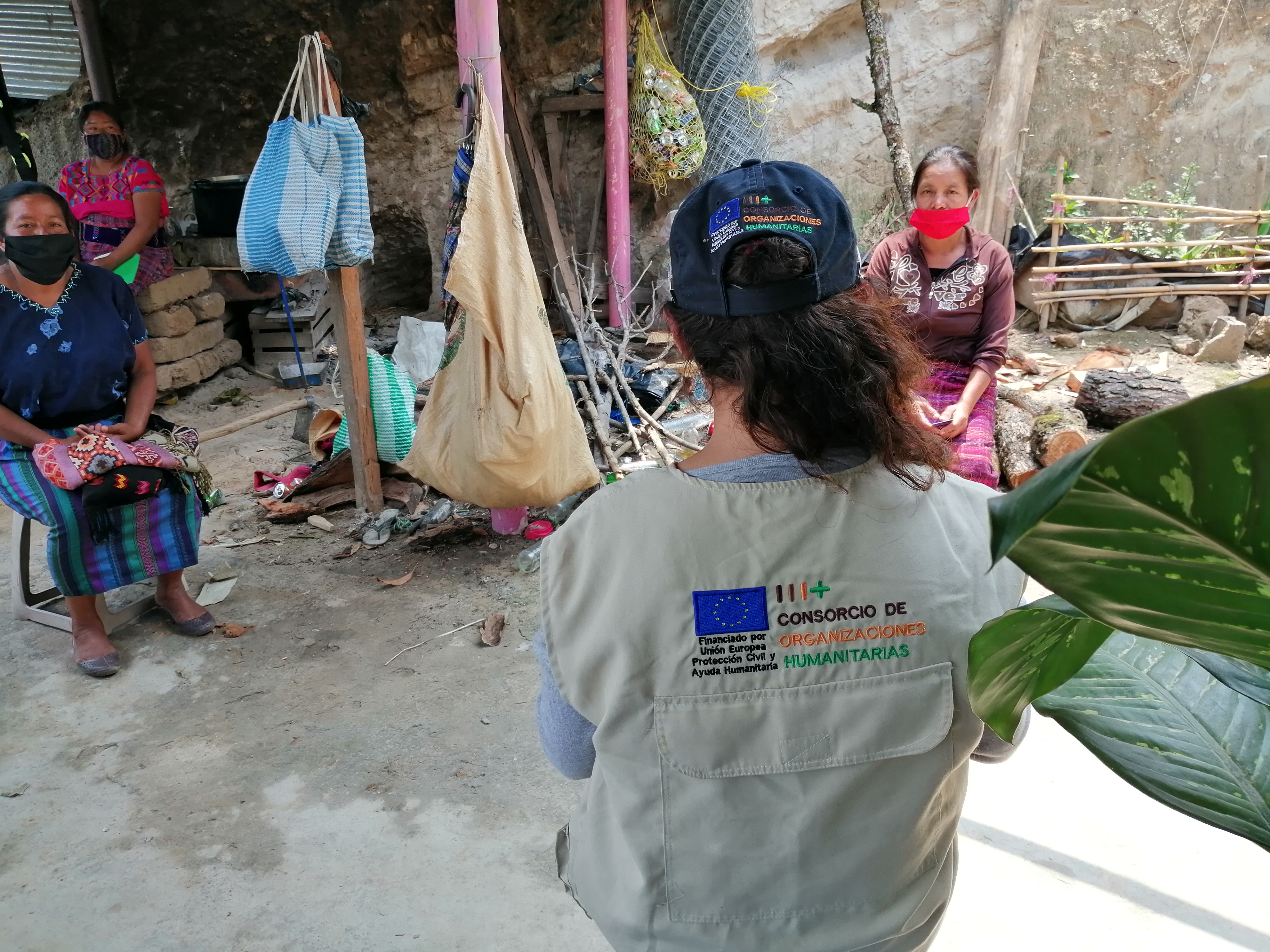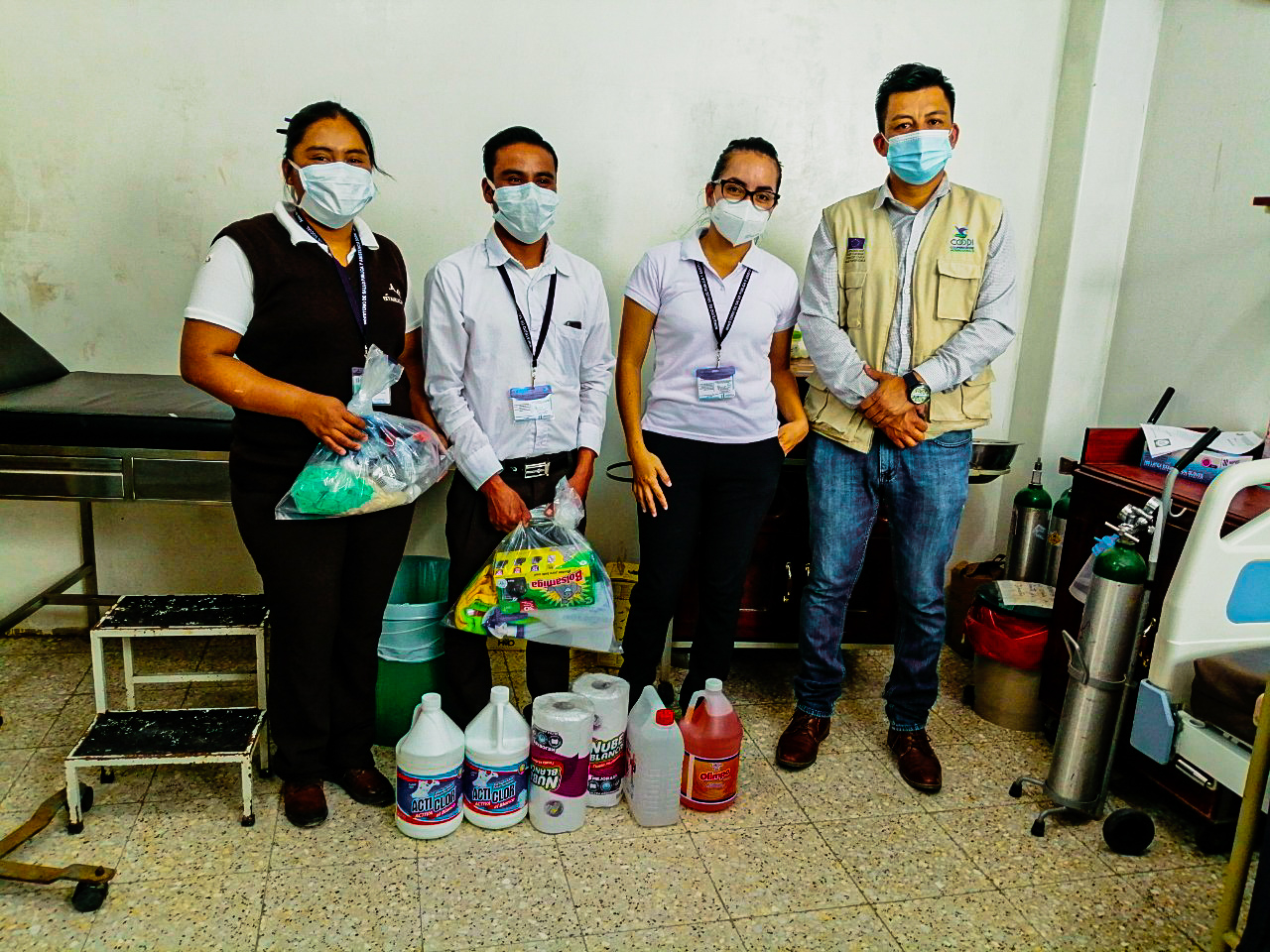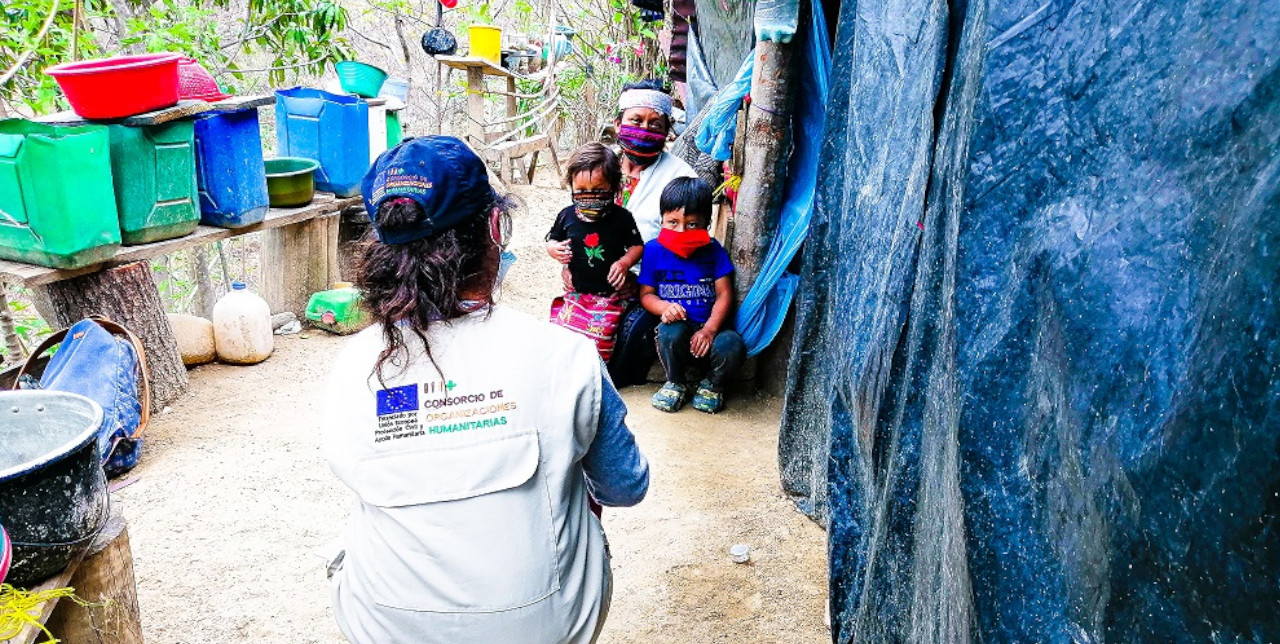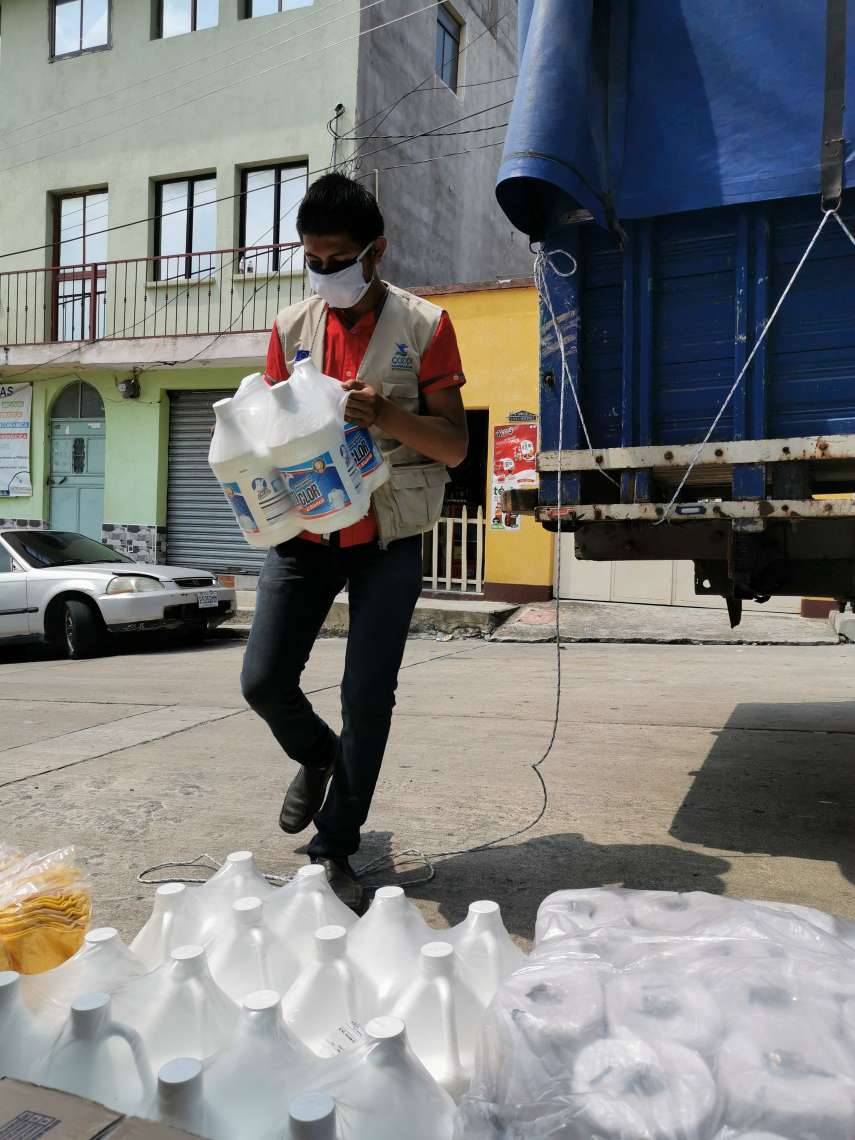11-06-2020 | di COOPI
Covid-19. In Guatemala, we are in the front line for the most vulnerable families
From March 2020, the pandemic Covid-19 became a health emergency in Guatemala. In the western highlands of the country, the number of cases was immediately high, and the region became the second by the number of infected. COOPI, in the framework of the project “Humanitarian response to the needs of the most vulnerable communities affected the protracted food crisis and recurrent droughts in the Central American Dry Corridor” funded by the European Union Humanitarian Aid, provided a fast and adequate answer.

Meeting with families for kit distribution
To mitigate the direct and collateral effects of the pandemic, and aware of the upcoming food crisis, COOPI elaborated preventions and protection’s protocols to avoid the contagion of its staff and its beneficiaries. Moreover, it implemented awareness session and distributed hygiene and disinfection kits together with food rations. COOPI addressed around 4,000 people, members of the most vulnerable communities living in the Huehuetenango community.
Distribution of disinfection material
COOPI distributed personal protective equipment and hygiene and disinfection products to health centres staff who lacked these materials. Juan Manuel Delgado, a nurse at the healthcare unit of Colotenago, Department of Huehuetenango, declared:
“Thank you COOPI for your donation. Unfortunately, we did not have enough material to face this crisis. Thanks to COOPI, 7 healthcare units received Chlorine kit, antibacterial gel, masks and protective devices. Now, staff can assist affected families in a timely and safe manner”.

Distribution of material to healthcare centres
Covid-19 is an emergency that is additional to the already critical situation experienced by families in the department of Huehuetenango. The western highlands of the country already affected by droughts is characterized by a high level of food insecurity and acute malnutrition in children under the age of five. For this reason, for local communities, the Covid-19 pandemic is not only a health threat but also a social and economic one.




 Guatemala
Guatemala
